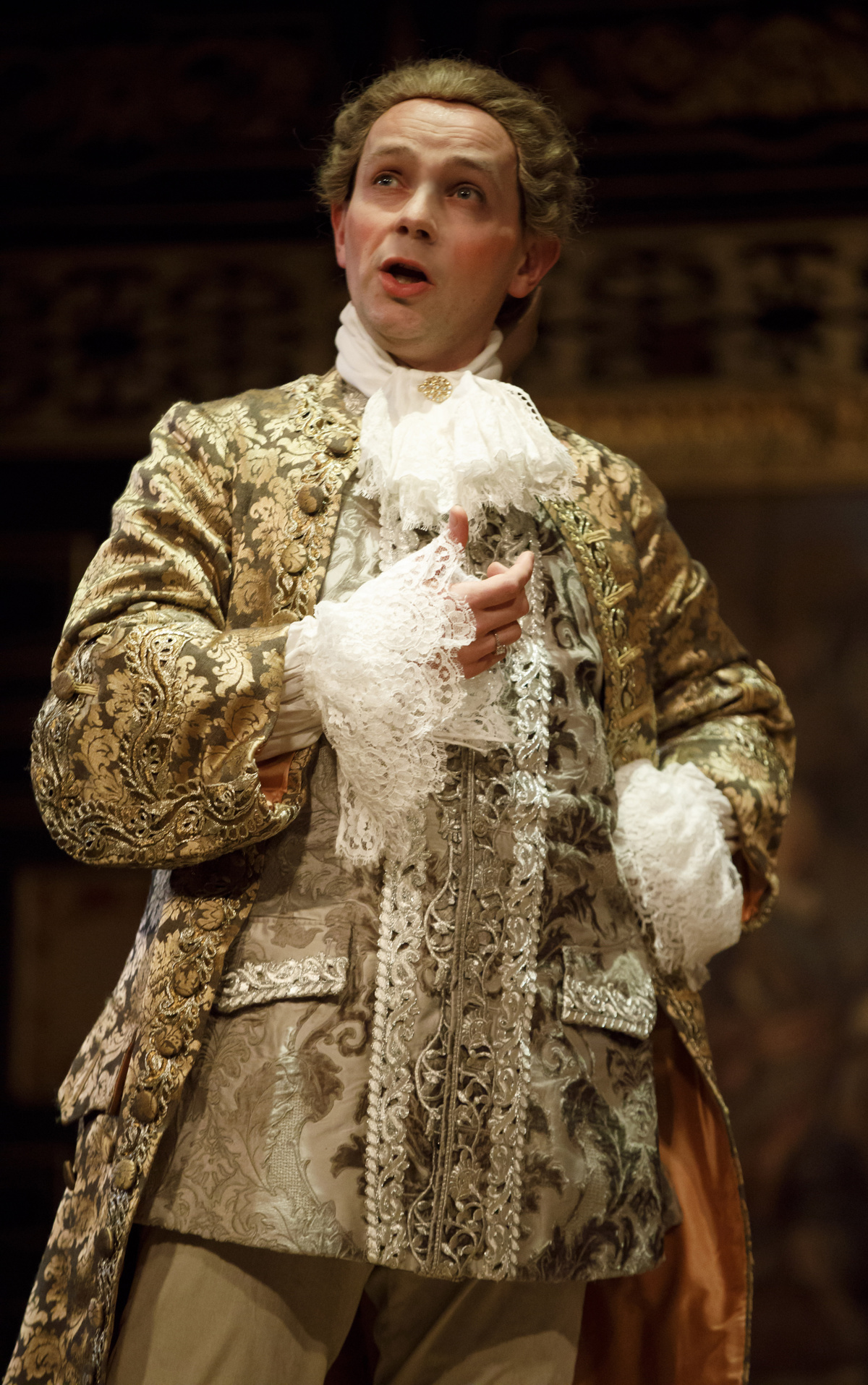
For those of you who can’t get enough of Handel sung beautifully by the renowned countertenor Iestyn Davies as the “singing” Farinelli (a renowned 18th century castrato) hie thee over to the Belasco Theatre (till March 25th) to hear this wondrous voice that calmed the nerves of one King Philippe V of Spain in what is now called bipolar disorder.
In fact, in this production there are indeed two Farinellis. The “singer” and the “actor.” The King may have suffered from mood swings but Farinelli suffered from having a split personality. It’s a bit confusing. But beautiful to look at and listen to.
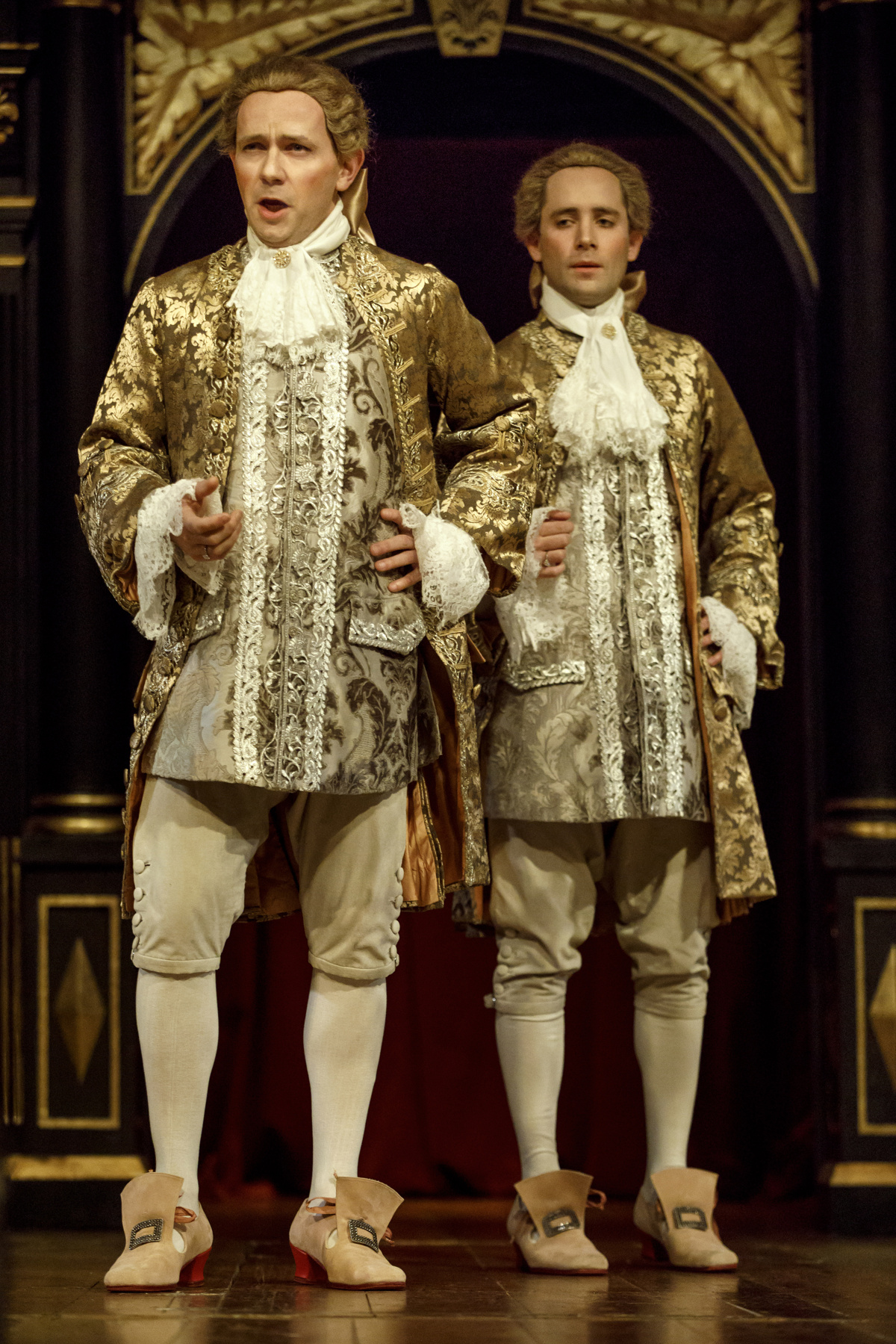
Famous beyond his wildest dreams he only desired to escape his voice and be a regular “man.” The actor Farinelli is portrayed by an equally wondrous Sam Crane. They look alike. They act alike. Somewhat like conjoined twins Daisy and Violet in SIDE SHOW.
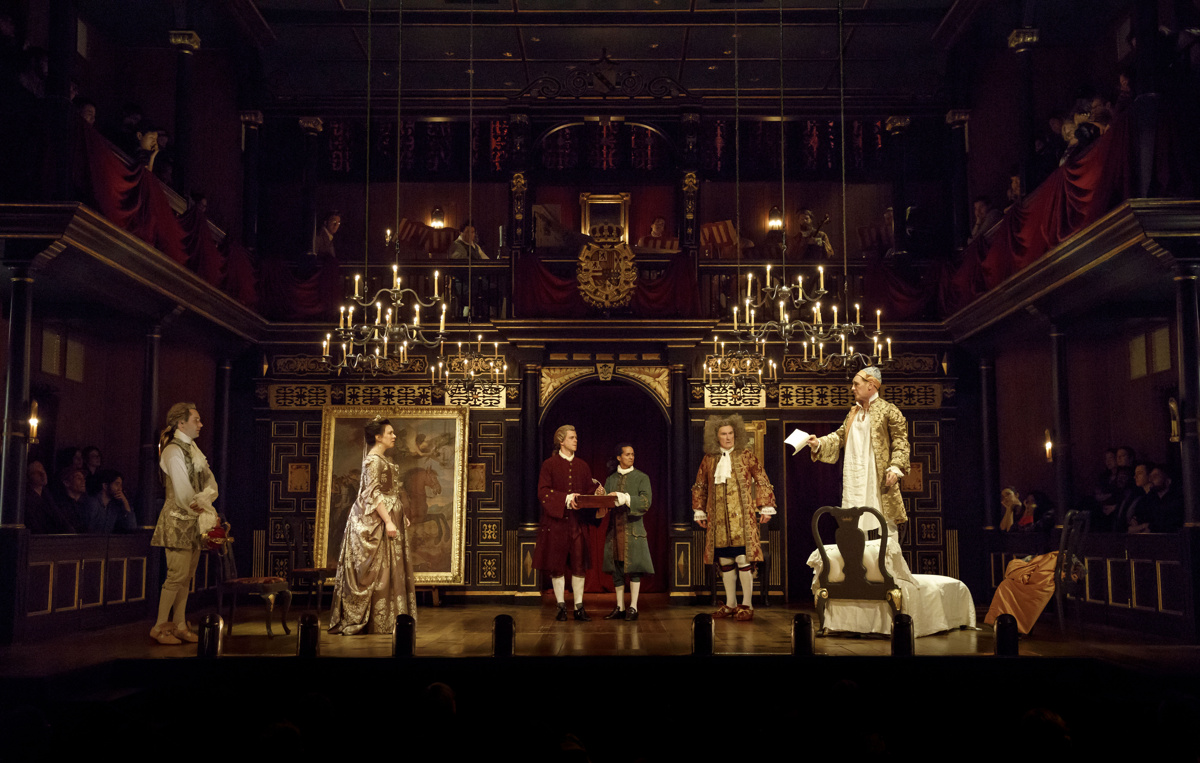
Bedecked in beautiful brocade period costumes by UK Costume Coordinator Lorraine Ebdon-Price and bathed in the golden glow of candles and amber lighting design by Paul Russell and set in a sumptuous surrounding of a period theater within the lovely Belasco theatre – this play with music unfurls and/or implodes – as some audience members seated on either side of the stage crane their necks to see what all the fuss is about.
It’s a fascinating subject that is skimmed over in Cliff Notes style by novice playwright Claire Van Kampen – a composer and historical music scholar. Unfortunately the play is NOT the thing here. It is its renowned star Mark Rylance.
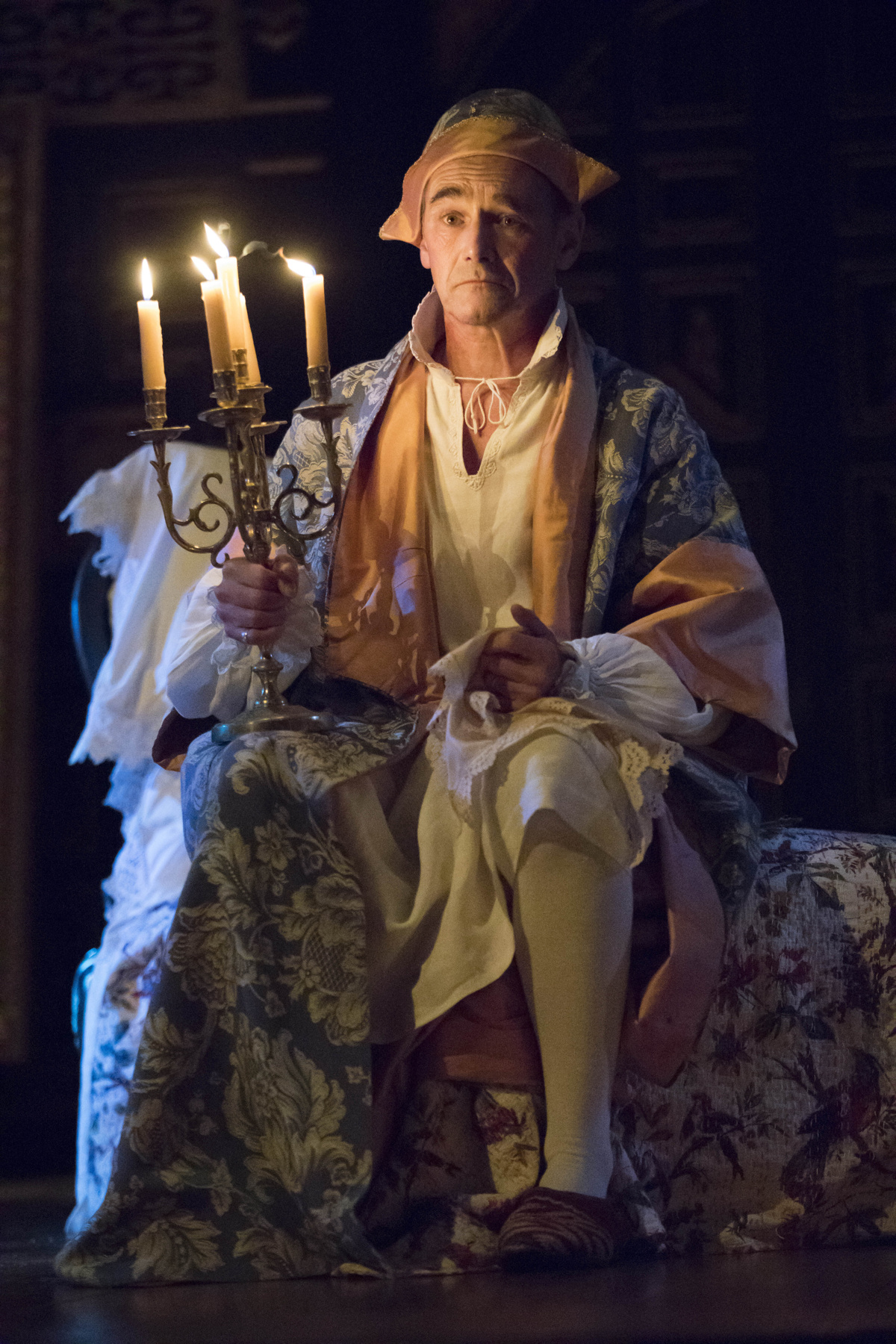
Who happens to be Claire Van Kampen’s husband portraying King Philippe V in all his wacky glory: tics, pauses, asides, tantrums and underlying charm and wit that Mr. Rylance is famous for and could act the part in his sleep. In fact, he spends much of this time in a nightshirt abed.

It is a golden missed opportunity that leaves so many questions unanswered that I urge anyone who is thinking of attending FARINELLI AND THE KING (which would not be high on my to-do list) to first read the very informative insert by David Cote enclosed in the Playbill program.
The King’s doctor (Huss Garbiya) sees no cure and along with Chief Minister Don Sebastian De La Cuadra (Edward Peel) they are determined to get him off the throne as they see him as unfit to rule.
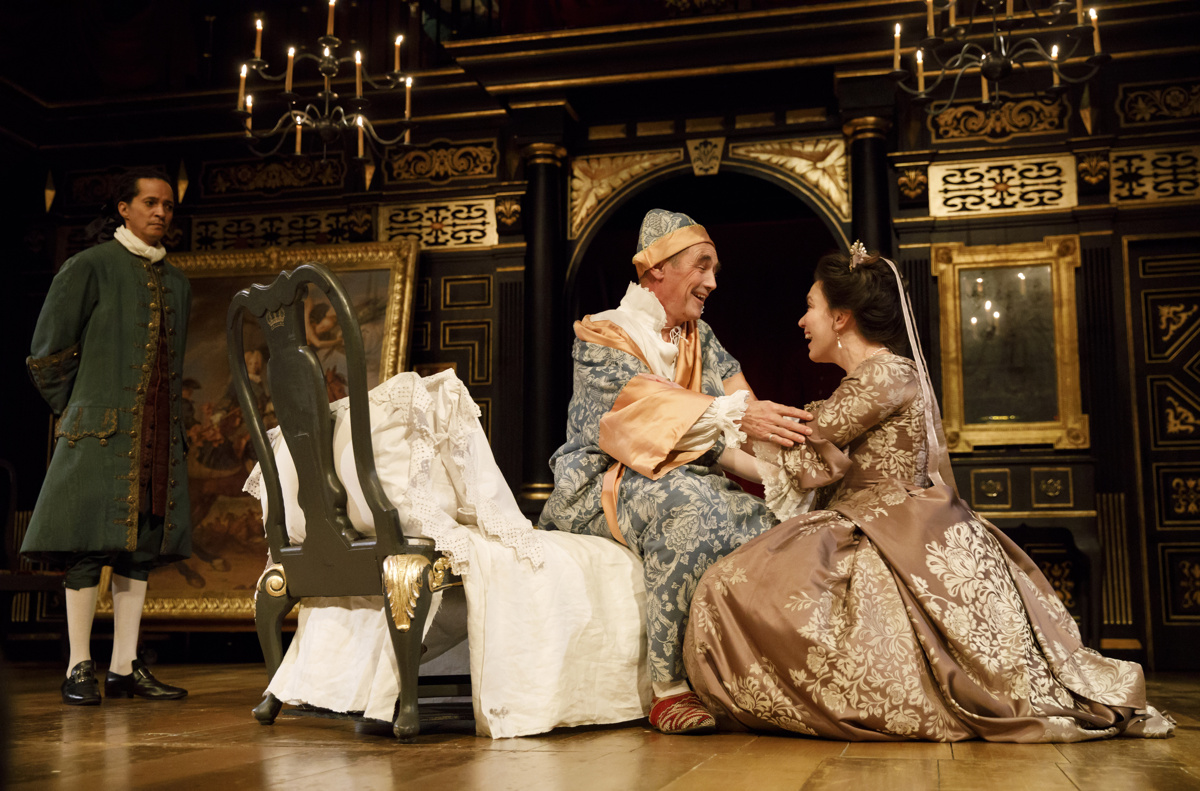
When all else fails his devoted second wife Isabella Farnese (a calm and more than adequate Melody Grove) travels to London, hears Farinelli’s voice and somehow persuades him to leave his career to tend to the King believing this celestial voice will help soothe the King. He does. Why?
Most of Act II is in the countryside where all three commune with nature, experiment with the cure and kibitz with the audience after all the flickering candles have been replaced anew during intermission. There is a sublime scene between Isabella and the two Farinellis.
Director John Dove has seen fit to include some silly sight gags and an Act I finale worthy of Cirque du Soleil.
The King remarks that Farinelli’s singing “makes it possible to live in this world” – and so it is with visiting this Globe production imported from London. The power of music to heal is undisputed but it can also lull you to sleep.
At certain performances the singing Farinelli is portrayed by James Hall.
www.farinelliandthekingbroadway.com
Photos: Joan Marcus
Visit www.TalkEntertainment.com
Tags: No Comments

0 responses so far ↓
There are no comments yet...Kick things off by filling out the form below.